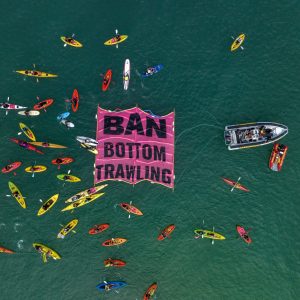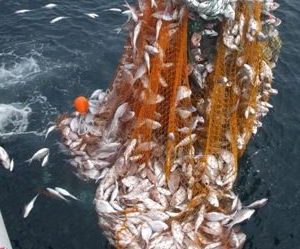Gurnard are a special treat so it is concerning that increasing numbers of people are highlighting the scarcity of this prized fish on the eastern seaboard. For years they have been a rare catch in the Hauraki Gulf. Now it seems Bay of Plenty fishers are starting to feel the bite.
Decades of inshore trawling has degraded suitable habitat and swept up the remnants of a once-abundant fishery.
With no real constraint on commercial fishing, we cannot envisage a rebuild in gurnard numbers any time soon.
Paul Hitchman is one of 1100 members of the Bowentown Boating and Sport Fishing Club. Paul’s colleagues support his recent letter to the Minister for Primary Industries Nathan Guy, where he describes his diary of catches since the early 1990s compared to his recent experiences in the Waihi Beach area.
“Over the last 10 years our catch has slowly declined from regularly catching a few gurnard, to last year having caught only two gurnard for 40 fishing trips.”
Paul Hitchman
Paul is so keen to see gurnard numbers restored he advocates for a ban on inshore trawling, and even a temporary closure to recreational gurnard fishing in the area until stocks improve, but that could be a long way off.
For a start, there has been no meaningful control of commercial gurnard fishing effort since records began in the 1930s.
Gurnard was introduced to the Quota Management System in 1986 and 2287 tonnes of quota were ‘created’’ then gifted in perpetuity to those who had done the most damage. Since then the catch has essentially been unconstrained (other than by lack of catch entitlements for snapper). There has never been an allowance made for our recreational or customary catch.
The complete failure to properly manage gurnard is disgraceful.
The TACC is meant to be the mechanism that controls commercial effort so the fishery and the marine environment stays productive over the long-term. Instead, what we have is a fleet of trawlers that can scour the waters from south of Kawhia on the west coast, all the way up to North Cape and down to Cape Runaway in the eastern BOP.
Recreational fishers targeting gurnard with a rod and reel cannot expect to compete with unlimited trawl effort enabled by a broken QMS. The sooner we get an inshore zone free from industrial bulk harvesting the better it will be for all of us, particularly for the people of the once-famed Bay of Plenty.
Article first published in NZ Bay Fisher magazine





